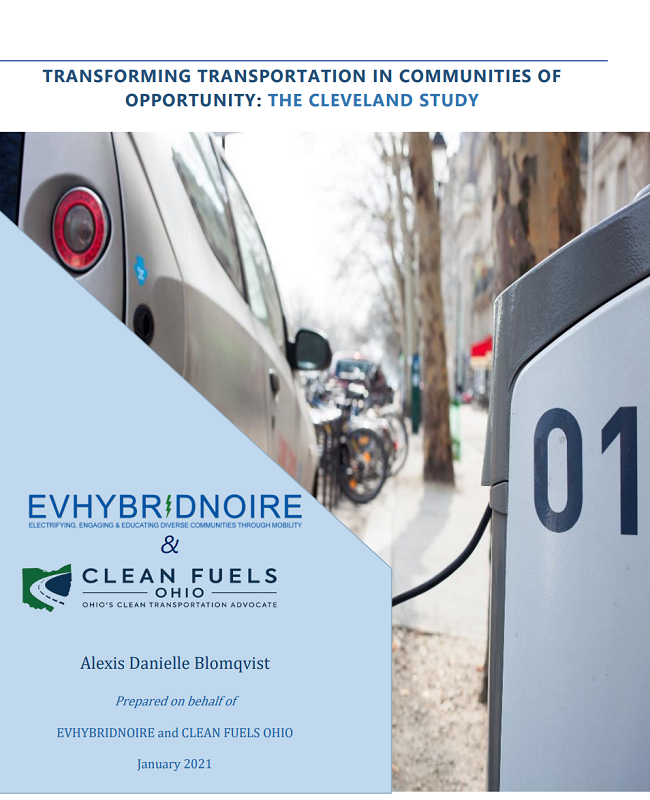Currently, higher income, predominantly white communities are experiencing EV adoption at disproportionately higher rates than their Black and low-income counterparts. This means that those communities are disproportionately reaping the localized benefits of EV adoption. To ensure equity in the distribution of the benefits of transportation electrification, it is crucial to understand the impacts of environmental racism, to explore and promote electric vehicle adoption, and to develop models for transportation electrification in low-income urban communities. Included in these efforts is advocacy for polices at both local and state level that are designed to move toward equitable outcomes for all. It is clear that widespread adoption of electric vehicles provides significant benefits to both owners and communities alike, including improved health outcomes, financial benefits (such as lower maintenance costs for owners and downward pressure on rates for all electricity ratepayers regardless of vehicle type), and community-wide economic benefits derived from reducing the exportation of energy revenue. It should therefore be a key priority for all stakeholders in this industry to ensure that these benefits are shared by all.
In pursuit of this goal, EVHybridNoire and Clean Fuels Ohio developed a joint report detailing the attitudes, beliefs, and knowledge of next generation mobility in the Greater Cleveland area to identify unmet transportation needs in target communities. By gathering data on these participants’ experiences with clean transportation, governmental agencies, advocacy organizations and utilities can begin to understand and plan to meet the needs of low income and Black communities, who have thus far been largely excluded – on an institutional level – from outreach, education and policy efforts.
Preview the report here:
More About this Resource
Publisher: Clean Fuels Ohio, EVHybridNoire
Date: January 31, 2021
Type: Case Studies
Countries: United States
States: Ohio

